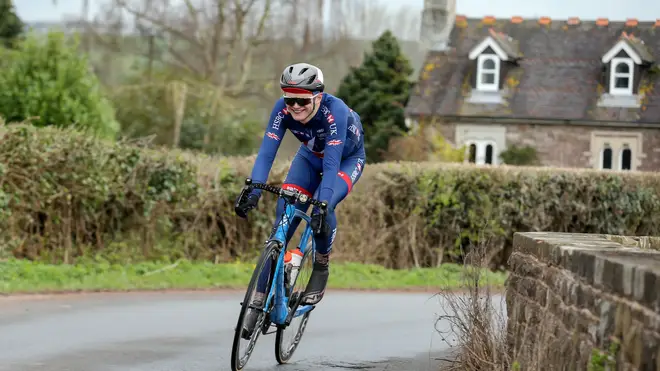
James O'Brien 10am - 1pm
28 March 2022, 00:27 | Updated: 28 March 2022, 00:34

Top cyclists on Team GB face losing their places after a trans woman announced she would begin competing in female events.
Emily Bridges, 21, will compete in the women's cycling category for the first time in 2022.
While undergoing hormone therapy, she had continued to race against men, recently winning gold at the University Championships.
However, her testosterone levels have now dropped low enough to meet the criteria set out by British Cycling for her to compete against women.
The governing body's policy states that a rider's testosterone levels must be below 5 nmol/L for at least 12 months before their first race, according to Cycling Weekly.
Read more: 'Tennis club goes woke': Trans row after upmarket club dumps female membership option
Read more: 'Trans athlete stole my spot in final': Swimmer who lost out to Lia Thomas breaks silence
Speaking about her transition during an interview with the magazine, Ms Bridges said moving to women's racing was "always the plan".
"After starting hormone therapy I didn't want to race in the male category any more than I had to – obviously, it sucks, getting dropped, racing as a man when you're not one," she said.
"It was quickly apparent that that was the wrong category for me."
Ms Bridges went on to say: "I am nervous – it’s impossible not to be.
"And we’re preparing as best we can, though there isn't much we can do to stop it – people are free to express their opinions, provided they do so within the law."
It comes after US swimmer Lia Thomas made history by becoming the first transgender person to win a US National Collegiate Athletic Association (NCAA) Division I title earlier in the month.
Her win sparked controversy among other competitors, with Reka Gyorgy taking to social media to accuse Ms Thomas of "stealing" her place in the finals.
A spokesman for British Cycling told the Mail: "We believe that the updated policy reflects the current evidence available to us.
"However, we acknowledge that more research into this area is required."